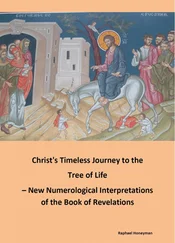Anthony Howard’s judgement is that the charter ‘ended up virtually sealing the party off from its pre-war past’. Butler, more grandiloquently, echoed the Spectator’s view that it destroyed ‘the last excuse for labelling the Conservative party as reactionary’. 20That may have been true internally in 1947. But The Right Road for Britain, a document produced two years later which formed the basis for the 1950 and 1951 manifestos, shows how far the party knew it had still to go to convince the public.
In 1949 it was still felt necessary to produce an immensely detailed three-page appendix, packed with small print and headed ‘Our contribution to the social services 1918–1945’, listing all such measures passed ‘by Parliaments with Conservative majorities’. With a rather desperate air, it presented the Tories as the real founders of the welfare state. The body of the document stated: ‘The Conservative party has welcomed the new social services which it has done so much to create. We regard them as mainly our own handiwork. We shall endeavour faithfully to maintain the range and scope of these services, and the rate of benefits.’ Indeed, it even went so far as to argue that the ‘vast experiment in social organisation’ in which Britain now ‘led the world’ had been ‘the work of the Conservative and Liberal Parties’ and that Labour in the past four years had merely ‘carried out in partisan spirit the plans prepared by the National Coalition Government with its large Conservative majority. They have no claim to any achievement of their own.’
None of this made The Right Road a cosily bipartisan effort. Other strains of thought remained extant. In 1945, Friedrich von Hayek, the Austrian free market economist, had written The Road to Serfdom, asserting that all forms of socialism and economic planning end inescapably in tyranny. It sold widely; Sir Waldron Smithers, for one, was a Hayek fan and its influence may even have inspired Churchill’s disastrous claim in the 1945 election that Labour would introduce a Gestapo. Hayek himself was installed at the London School of Economics, where he provided a powerful counterpoint to the arguments of the social policy wizards who became known as ‘Titmuss and the Titmice’: first T. H. Marshall, who provided a theoretical construct which legitimized the welfare state as a historical force, then Titmuss himself, and later Brian Abel-Smith, Peter Townsend and their successors, all of whom heavily influenced the thinking not just of Labour but of more moderate Conservatives by providing both a critique and a renewal of the vision of the welfare state as well as of its detailed implementation.
By 1949, Hayek’s influence had waned, with his star not set to rise again politically until the mid-1970s. His influence, none the less, can be seen in the opening sentence of The Right Road for Britain which stated baldly: ‘Britain today has the choice of two – and only two – roads. One leads downwards to the Socialist state and inevitably into communism.’ The other, of course, was the Conservative way, including a commitment to ‘the property-owning democracy’. (That was the only memorable phrase ever attributed to Anthony Eden, who had popularised it at the 1946 Tory party conference, using it to embrace employee share ownership and profit sharing as well as home ownership.) 21A review of rent controls was promised and it was noted acidly that it now took three men to build what two had built before the war. Seamlessly, however, the document also pledged more four- and five-bedroom council houses for larger families, and more smaller ones for elderly couples and single people.
The preservation of grammar schools was beginning to emerge as a Tory theme, but The Right Road for Britain also conceded that ‘Under certain circumstances, variations of the multi-lateral idea may well be adopted’, and while the party wanted to get rid of price controls and rationing it underlined that for necessities ‘we shall not until there is enough to go round’. 22So long did the image of the ‘bad old Tory days’ linger that a popular question-and-answer version of the pamphlet even referred directly to them and asked: ‘Q: Is it true that the Conservatives want to cut the social services? A: This is a deliberate lie.’ 23
The fact that not just the party’s leaders but its activists had changed was shown at the 1950 party conference, held after the general election. With the Conservatives having made much of Labour’s failure to achieve the 300,000 houses a year built before the war, the conference became restive during a housing policy debate with representatives clamouring for a concrete Tory target. They started to chant: ‘Three hundred thousand.’ When the chair ruled such a move out of order the normally compliant ranks of Conservatives were for once reduced to uproar. Lord Woolton, the Tory party chairman, was sitting beside Butler and whispered, ‘Could we build 300,000?’ to which Butler replied ‘The question is should we?’ – a distinction that Anthony Howard judges went straight over ‘that populist politician’s head’. Butler added, however, that if the question was whether such a target was technically feasible, then the back-room staff should be consulted. David Clarke, the director of the Conservative Research Department, off the platform, said it could be done, and Lord Woolton stepped forward to declare: ‘This is magnificent. You want a figure of 300,000 put in? Madam chairman, I am sure that those of us on the platform here will be very glad indeed to have such a figure put in!’ 24Butler was to comment thirty years later on Lord Woolton’s ‘This is magnificent’: ‘So, in a sense, it was. Both the promise and the achievement were magnificent politically; economically, however, they placed a severe strain upon our resources which contributed to the difficulties of 1954–5.’ 25
In this way the Tory party went into the 1951 election committed to building 300,000 houses a year and to the maintenance of the rest of Britain’s welfare state. The question then arises, did this amount to a consensus? And if so, how long did it last? If the definition is taken to mean unanimity, then plainly there was no consensus, not even within parties let alone between them. The left of the Labour Party – and at times not just the left – remained implacably opposed to private provision in education and health, for example, and fought to have their extinction included in the party programme. Within the Conservative Party the acceptance of a far greater degree of collectivism by Butler, Eden, Macmillan and Heath had still to contend with the remaining free market adherents of Hayek. Between the parties there remained fierce practical disputes about, for example, the role of the private and public sectors in housing – arguments which reflected key underlying distinctions in philosophy: the value of personal freedom and ownership against collective provision, of universality against selectivity, of choice against equality. It remained true that in an ideal world, untrammelled by realities and electoral considerations, Labour would happily have spent more and the Conservatives less. On the broadest of fronts – the handling of the economy, nationalisation, fiscal redistribution – profound differences between the parties remained.
But on the narrower issue of the welfare state and the services provided under it, the areas of agreement for a long time proved more important than areas of dispute, despite genuine battles over particular policies and a fierce picking of differences. The maintenance of full employment, for example, remained a shared goal right up to the late 1970s. It might not have done. In early 1952 the Treasury put to Butler, then Chancellor, a programme called ROBOT after the initials of the Treasury civil servants – ROwan, BOlton and OTto Clarke – who constructed it. It proposed floating the pound, producing steep rises in prices of imported food and raw materials and a consequent surge in unemployment. Butler believed in the scheme, stating in his memoirs that the decision not to go ahead was ‘a fundamental [economic] mistake’. But Lord Cherwell, one of Churchill’s key advisers, saw Butler’s proposal as ‘a reckless leap in the dark’ which would have ‘appalling political and economic consequences at home and abroad’, 26and with Eden, Woolton and others against opposition built to the point where, as Butler later recorded, ‘among ministerial colleagues I could count Oliver Lyttelton alone as a consistent supporter’. The scheme was rejected in the face of a range of objections among which the fear of unemployment loomed large. Had it gone ahead history would have been different and, as Butler noted wryly and regretfully, ‘the term Butskellism might never have been invented’. 27
Читать дальше
![Nicholas Timmins The Five Giants [New Edition]: A Biography of the Welfare State обложка книги](/books/701739/nicholas-timmins-the-five-giants-new-edition-a-cover.webp)











